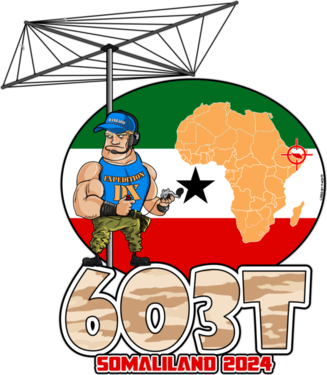DXpeditions are always exciting adventures that very often allow us DXCC enthusiasts to connect with countries that would otherwise be difficult to reach, for many reasons. Behind every contact, there is often a lot of work, planning, organizing, and also a significant financial commitment on the part of the operator, as well as from the clubs and foundations that play a crucial role in the success or failure of such endeavors, especially when targeting the Top 50 of the DXCC Most Wanted List. DXpeditions play a vital role in the ham radio field, keeping the passion for radio and DX alive.
Usually, these types of operations are associated with experienced operators who possess great organizational and practical skills, financial stability, and ample time. They are definitely not the typical profile of a young amateur radio operator!
I believe that involving young ham radio operators is very important and beneficial to our community. Even within established teams, young operators can contribute fresh perspectives, enthusiasm, and knowledge of modern technology, offering a different approach than usual.
Another major benefit of involving young radio amateurs in DXpeditions is their ability to adapt quickly to changing conditions and their open-mindedness, which can help the entire team avoid getting stuck in established operating conditions and adopt new and innovative strategies.
Additionally, young radio amateurs can contribute to the educational aspect of DXpeditions by sharing their experiences and knowledge, both within the amateur radio community and beyond. This can help raise awareness of our passion for radio and attract more young people to get involved in the world of radio and travel with a radio in tow.
For me, it is crucial to offer young operators opportunities and financial support to participate in our DXpeditions. Mentoring programs and grants, such as those offered by various foundations and associations, can help young operators acquire the necessary skills and financial assistance to participate in these expeditions.
We all need to invest in the next generation of radio amateurs to ensure continuity and vitality in our passion, which has been diminishing over the years. We need to gradually pass on our knowledge and experiences to them, regardless of how big or small they may be. Everyone can contribute to this knowledge-sharing journey.
We should provide them with tools that empower them to become DXpeditioners themselves for the future activations. In conclusion, I believe that the involvement of young radio amateurs in DXpeditions, including ourselves, can bring significant benefits to our ham radio community. Whether we are organizers, clubs, foundations, or supporters, let’s do our best to encourage and support the participation of young radio operators in DXpeditions and in the world of ham radio in general, ensuring a bright future for all radio amateurs.
73 de IW3SQY

